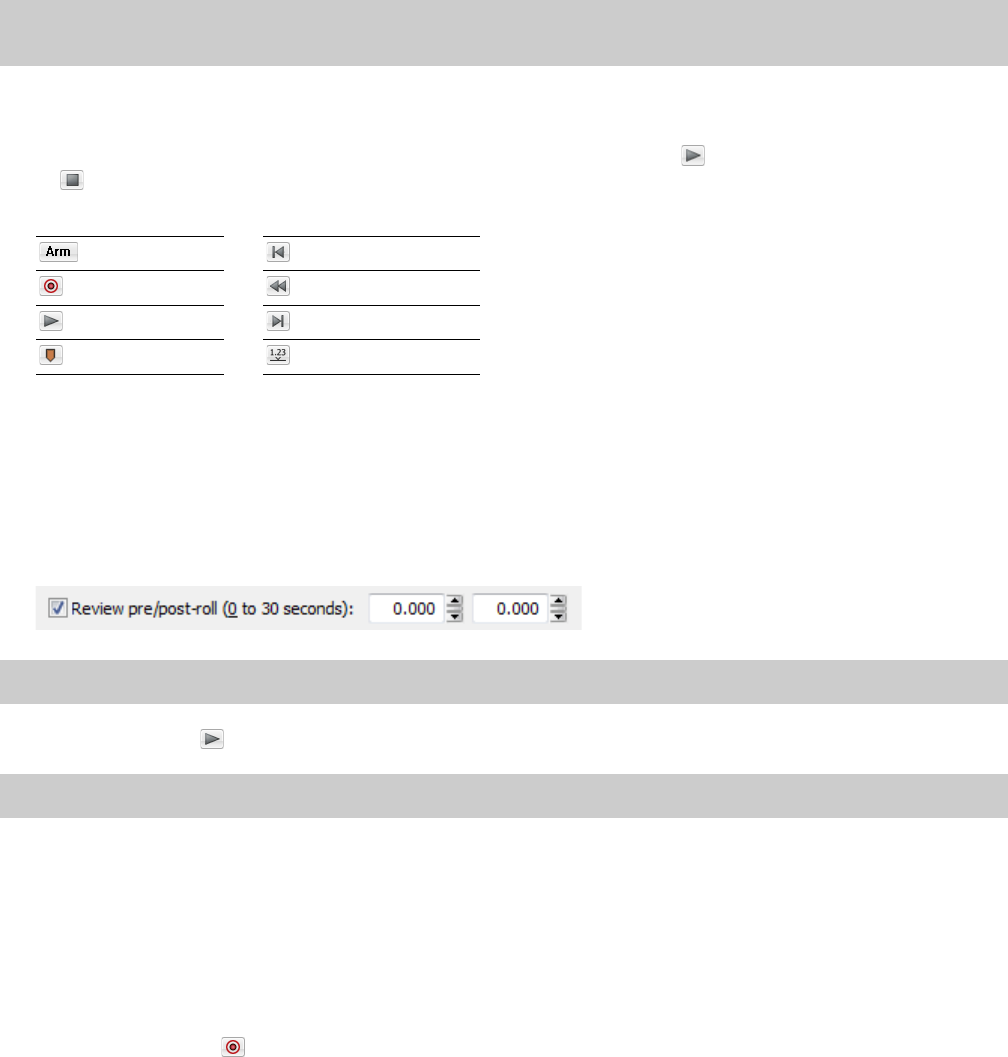
Recalibrating the DC adjustment
If you have multiple sound cards, you should recalibrate the DC adjust each time you select a new recording device. Certain sound cards
must also be recalibrated each time the sample rate changes or when switching between mono and multichannel recording.
Tip:
You can recalibrate at any time, even during recording. However, it is preferable to perform recalibration with silence at the record
inputs.
Playing back recorded audio
Audition your recorded audio by playing it back in the Record dialog. Click the Play button ( ) to begin playback and click the Stop
button (
) to end playback. You can use the other buttons on the mini-transport bar in the Record dialog to navigate to different
locations in the file.
Arm Go to start of file
Record Go to start of last take
Play Go to end of file
Insert marker Go to
Adjusting pre/post-roll for punch-in and automatic retake recording playback
Once you have recorded a punch-in or an automatic retake, you can audition it with user-configured pre-roll and post-roll to evaluate
the performance. This option allows you to indicate the amount of sound data that should be played preceding or following your
recorded take when you review your takes. Reviewing with pre- and post-roll helps you review your takes in context.
1.
Select the Review pre/post-roll check box in the Record dialog. The two corresponding boxes become active.
2.
Enter appropriate pre-roll and post-roll values in the respective boxes.
Note:
In Automatic retake mode, the post-roll control is unavailable.
3.
Click the Play button ( ). The punch-in segment plays with the configured pre-roll and post-roll.
Note:
Regardless of the data window’s current status format, pre-roll and post-roll values are measured in seconds.
Synchronizing with other devices
Sound Forge software can generate MTC/SMPTE synchronization while recording.
1.
From the Options menu, choose Preferences, and click the MIDI/Sync tab.
2.
On the MIDI/Sync tab, choose the trigger device from the Input drop-down list and click the OK button.
3.
From the Options menu, choose MIDI In/Out, and then choose Generate MIDI Timecode from the submenu to enable MIDI
timecode output.
4.
Click the Record button (
5.
Click the Advanced tab at the bottom of the Record dialog.
6.
Select the Enable MTC/SMPTE Output Synchronization check box.
7.
Select the Start check box and specify the time you want to start recording.
8.
Select the Pre Roll check box and type a value in the edit box to begin SMPTE output at a specified time before recording.
9.
Click the Close button.
).
142 | CHAPTER 8
